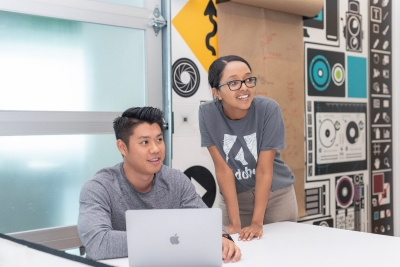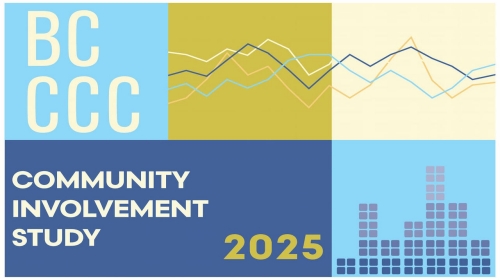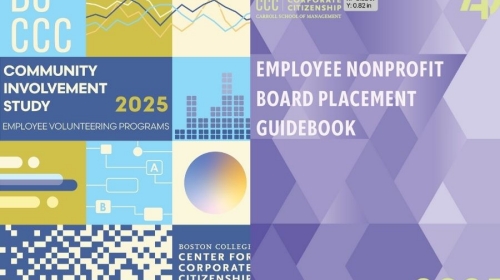WEBINAR: This webinar explores how to measure and communicate your organization's social impact with proven frameworks and strategies that matter to stakeholders.
Improving emotional well-being for remote employees

PICTURED AT RIGHT: During COVID-19, many of Adobe’s wellness programs have gone digital, which means employees can get fast, convenient care for their emotional and physical health needs.
This month’s Member Spotlight is an excerpt from the new Employee Mental Health Wellness Study 2020.
Employees are facing more potential challenges than ever that have the power to negatively impact their mental health. Stuck at home due to the COVID-19 pandemic, people have lost their usual social connections, their routines, and their sense of safety.
Feelings of loneliness, uncertainty and fear, worries about the health and well-being of loved ones, and the added stress of managing working from home while caring for our families is testing the mental resilience of many of us. Plus, as if balancing work and home wasn’t difficult enough before, now the line between work and home is blurred, which for many means needing to manage much more than before and wearing many hats simultaneously: employee, boss, parent, educator, and more.
Added to that, the increased lens on social injustice puts a huge burden on the mental health of those affected communities, their allies, and all those who are concerned and confused about the current state of our nation and world. Increasing access to mental health support, enabling people to connect with each other in meaningful ways, and offering creative solutions to help manage their work-from-home challenges has become the focus of well-being programs at many companies, as Adobe has done. In this article, we’ll look specifically at Adobe’s programs for employees’ emotional well-being.
“Adobe Cares” is the principle that Adobe uses when designing its well-being programs, and in a short period of time, the computer software company has turned to innovative solutions to tackle the challenges we are currently facing as a society. Many of Adobe’s programs have moved to digital services, which means people are getting fast, convenient care for their emotional and physical health needs.
More mental health services are available virtually than ever before, making them more accessible and convenient—which is especially vital at this time. People who may not have been likely to seek counseling before due to perceived stigma are able to get the help they need from the comfort and privacy of their home.
One of Adobe’s foremost programs is its employee assistance program (EAP). Adobe has partnered with Aetna to provide employees and their dependents with confidential, short-term counseling services and additional work-life resources. Employees are eligible to use up to 10 free sessions per issue each year—through televideo, or through Talkspace, an online therapy program. These services are available at no cost to employees and all members of their household.
Individuals are also feeling empowered about caring for themselves. Adobe has seen an increase in usage of the health apps it offers employees—such as Headspace and LifeDojo—as people look for ways to cope with stressors and improve themselves by developing healthier habits, and we expanded access to and promotion of these benefits as a result.
Re-imagining the Adobe experience for employees virtually is making for a more inclusive atmosphere. It has led to new programs, such as Wellbeing Matters, a speaker series where Adobe invites experts to talk about what matters most to employees, and a similar program to support and educate managers. Virtual one-on-one fitness and dietitian consultations and online group workout and cooking classes now reach a wider employee population.
Employees, eager to seek out and quick to embrace new ways of connecting with each other to create a sense of community, are staying in touch with their old officemates and relating to other co-workers on topics they care about via Slack.
Membership in Adobe’s employee networks has increased as employees look to bond with others with similar life experiences. The networks have adapted to hold events virtually, such as this summer’s Pride dance party, and are building strong digital communities to enable their members to support one another.
While this year has been so hard for many of us, it is Adobe’s hope that adapting programs to a virtual environment will open the door for more people to prioritize their mental health, through this pandemic and beyond.
Read about corporate efforts to address mental health among employees and in their communities in the new Employee Mental Health Wellness Study 2020.
Related Content
RESEARCH BRIEF - Researchers investigated how ESG activities help or hurt financial performance, using nine years of data from over 1,200 global companies.
RESEARCH BRIEF - Researchers analyzed 4 US energy exchange-traded funds (ETFs) over 15 years, including 2 dirty energy funds tracking fossil fuel companies and 2 clean energy funds tracking renewable energy companies.
RESEARCH BRIEF - Researchers conducted a survey, which measured perceptions of CSR and ethical leadership within the manufacturing and service industries.
WEBINAR: This webinar explores how corporate giving will be reshaped by the One Big Beautiful Bill. Hear directly from corporate citizenship leaders as they share innovative, real-world strategies that deliver impact for communities and results for business.
This study explores shifting trends in employee volunteering, corporate giving, and other means of corporate community involvement.
This guidebook offers insights on placing employees in nonprofit board service roles.
This study explores shifting trends in employee volunteering, corporate giving, and other means of corporate community involvement.








